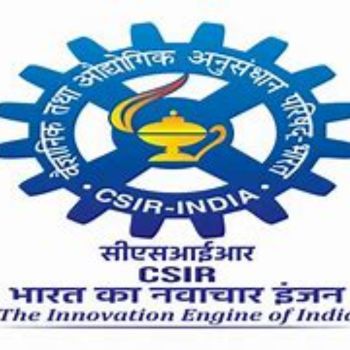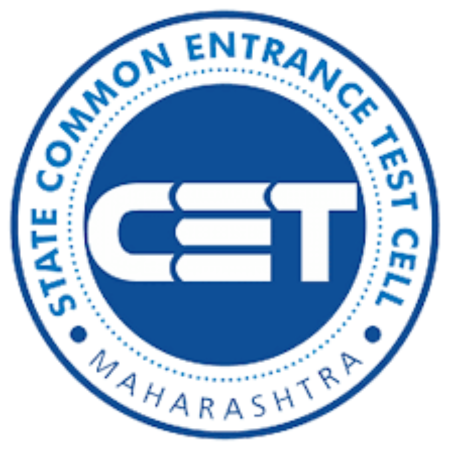An MD in Physiology is a postgraduate medical degree that focuses on the study of human body functions and mechanisms at various levels. It is a fundamental branch of medical science that explores how various body systems work to maintain health and homeostasis. The program includes theoretical coursework and practical laboratory training, emphasising experimental techniques, research methodology, and critical analysis.
To be eligible for the MD Physiology, the candidates must have completed their bachelor's degree in MBBS with at least 50% aggregate marks from a recognised university. The admission process relies on an entrance procedure like NEET PG, along with a personal interview round.
Some of the popular MD Physiology colleges and universities like Amrita Vishwa Vidyapeetham – Deemed University, Teerthanker Mahaveer University, Santosh Deemed to be University, and Sharda University. The average fee for the MD Physiology ranges between INR 45,000 – INR 10,00,000.
MD Physiology career paths include Medical college professor, clinical physiologist, research scientist, biomedical scientist, pharmaceutical researcher, health consultant, medical writer, laboratory technologist, academic research fellow, and sports science physiologist. The average salary you can earn after earning the degree of MD Physiology ranges between INR 5 LPA – INR 20 LPA.
Table of Contents
- MD Physiology Highlights
- What is an MD in Physiology?
- Why study an MD in Physiology?
- Who should study an MD in Physiology?
- MD Physiology Eligibility Criteria
- MD Physiology Entrance Exams
- MD Physiology Colleges in India
- MD Physiology Admission Process 2025
- MD Physiology Syllabus
- MD Physiology Vs MD Anatomy Course Comparison
- MD Physiology Job Opportunities in India
- MD Physiology FAQs
MD Physiology Highlights
Given below are some of the basic key highlights for the MD Physiology:
What is an MD in Physiology?
An MD in Physiology is a postgraduate medical degree that focuses on the study of human body functions and mechanisms at various levels. It is a fundamental branch of medical science that explores how various body systems work to maintain health and homeostasis. The program includes theoretical coursework and practical laboratory training, emphasising experimental techniques, research methodology, and critical analysis.
Graduates with an MD in Physiology often pursue careers in academic medicine, research, healthcare teaching, and specialised medical fields, contributing to advancements in medical science and improved patient care.
Why study an MD in Physiology?
Given below are some points on why you should pursue an MD in Physiology. Let’s have a look at them:
- An MD in Physiology offers a comprehensive understanding of the human body's functions, bridging the gap between biological sciences and clinical practice.
- It is essential for medical research, clinical diagnosis, and developing new treatment methods.
- This degree enhances analytical thinking and the application of scientific principles to solve complex medical problems.
- It opens numerous career pathways beyond traditional clinical roles, such as working as faculty members in medical colleges, conducting research in biomedical research institutions, pharmaceutical companies, and healthcare organisations.
- The focus on experimental techniques and research methodology hones skills in scientific inquiry, data analysis, and critical thinking.
- Ultimately, those seeking a comprehensive understanding of human biology to improve diagnosis, treatment, and healthcare innovations are the perfect candidates for an MD in Physiology.
Who should study an MD in Physiology?
Here are some of the points on who should pursue the MD Physiology course:
- An MD in Physiology is a highly rewarding specialisation for medical graduates and healthcare professionals interested in understanding the fundamental biological processes governing the human body.
- This specialisation is particularly beneficial for those aspiring to build careers in medical research, academic teaching, or clinical practice.
- Students who enjoy laboratory work, experimental research, and data analysis will thrive in this program, which demands both theoretical knowledge and practical skills.
- Medical graduates aiming to contribute to medical science advancements or educate future doctors and healthcare professionals should consider pursuing an MD in Physiology.
- It is also suitable for those working in interdisciplinary fields like pharmacology, biomedical engineering, and healthcare technology development.
MD Physiology Eligibility Criteria
To get enrolled in the MD Physiology program, applicants are required to meet certain eligibility criteria. Given below is the eligibility criterion commonly set by all the institutions offering the MD Physiology program in India:
- Candidates must have a bachelor’s degree and a master's degree with at least 50% marks from a recognised university, or an equivalent qualification.
- The selection process will prioritise candidates with prior experience in the health and development sector.
- Candidates with professional degrees are also eligible at many institutes, provided they have good academic records.
- The admission is generally based on various national-level entrance exams like NEET PG or any other university-specific entrance exam.
MD Physiology Entrance Exams
Given below is the MD Physiology entrance exam, along with the application date and application fees.
MD Physiology Colleges in India
Given below are the top colleges in India offering MD Physiology courses.
MD Physiology Admission Process 2025
MD Physiology admissions can be accessed through either the entrance examination mode or direct admission through a quota. The admission process at Amrita Vishwa Vidyapeetham – Deemed University is mentioned below:
Step 1: Visit the Amrita Vishwa Vidyapeetham – Deemed University admissions official site and choose the MD Physiology.
Step 2: Fill in the online application form with all the necessary details, upload scanned images of your photograph and signature, and pay the application fee online.
Step 3: Choose your admission mode: With a valid NEET PG Score.
Step 4: Complete the application and print it out for your records.
Step 5: Confirm that the NEET PG scores are valid and received.
Step 6: Wait for the release of merit lists: Each NEET PG, AIIMS PG and PGIMER participant has a separate merit list prepared by AIIMS Delhi.
Step 7: If shortlisted, go to the official site to see whether you have been selected, and follow the process for admission confirmation.
Step 8: Confirm your seat by paying the admission fee.
Step 9: Complete the document verification as per the institute's requirements.
Step 10: Now, receive the details regarding the commencement of classes after completing the formalities.
Documents Required:
- 10th and 12th mark sheets.
- Graduation Marksheets
- Aadhar Card
- PAN Card
- Migration certificate
- Character certificate
- School Leaving Certificate
- Passport-size photographs
- Signature.
- Caste Certificate (If any)
- Income proof
MD Physiology Syllabus
The syllabus for the MD Physiology is similar in all three institutes offering the course; however, a few subjects or duration may vary, but core subjects remain the same in all. Given below is the MD Physiology syllabus from Santosh Deemed to be University, Ghaziabad, Uttar Pradesh:
MD Physiology Vs MD Anatomy Course Comparison
Here is a detailed comparison table between MD Physiology and MD Anatomy based on various important aspects:
MD Physiology Job Opportunities in India
MD Physiology graduates can work in top hospitals, private clinics, research institutions, teaching, healthcare consultancy, and government health services across India. Given below are the job opportunities in India.
MD Physiology FAQs
What skills beyond academic knowledge does an MD Physiology graduate develop during the course?
MD Physiology graduates develop transferable skills in the modern healthcare ecosystem, including critical thinking, analytical skills, communication, teaching, time management, ethical awareness, and collaboration. They sharpen their analytical skills through hypothesis-driven research, develop communication and teaching skills through microteaching, and develop ethical awareness through responsible research. These competencies make MD Physiology holders adaptable professionals in academia, industry, or healthcare delivery, making them valuable in various settings.
Can MD Physiology graduates contribute to public health and policy-making?
MD Physiology graduates have a profound understanding of body functions and disease mechanisms, which is crucial for public health initiatives. They can design community health programs to prevent lifestyle-related diseases like hypertension and diabetes. They also analyse physiological risk factors in epidemiological research and collaborate with policymakers to develop evidence-based guidelines for health promotion, occupational safety, and environmental health standards.
What are the prospects of MD Physiology graduates pursuing interdisciplinary careers?
MD Physiology graduates are well-suited for interdisciplinary careers that combine medicine, technology, and research. They can work with bioengineers to develop medical devices, apply machine learning to physiological data for predictive health models, and excel in pharmaceutical R&D. They can also pursue careers in sports science, rehabilitation technology, and artificial intelligence-driven health diagnostics. This versatility allows them to thrive in emerging sectors that require a combination of biology, technology, and clinical insight.











